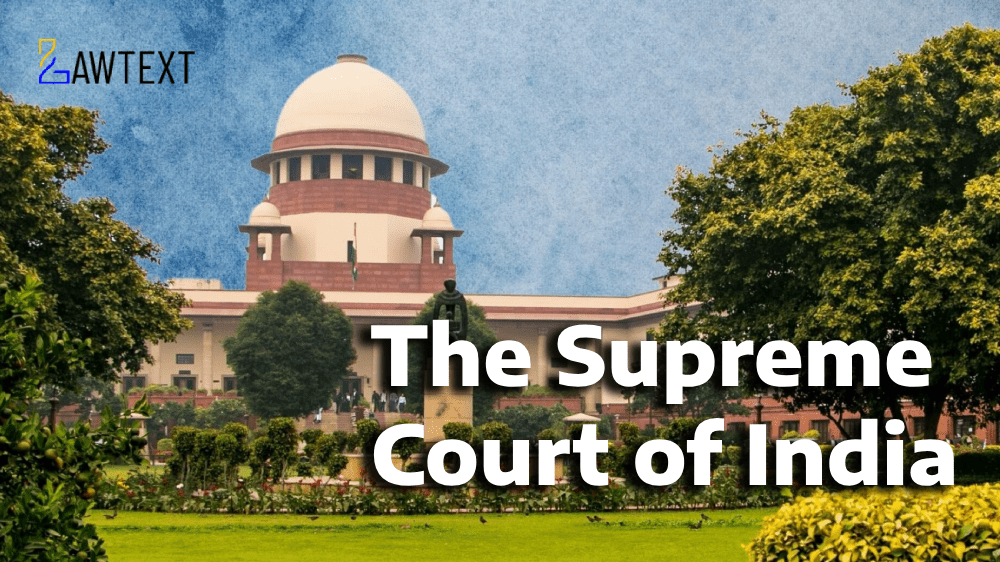Supreme Court Upholds Remand Order in Dispute Over Dissolution of Partnership and Final Decree. Partnership dissolution, settlement of accounts, and profit-sharing dispute resolved through remand for evidentiary re-evaluation.

CASE NOTE & SUMMARY
The Supreme Court disposed of appeals challenging the High Court's remand order concerning the dissolution of the partnership firm Crystal Transport Service. The original plaintiff sought dissolution, account settlement, and profit distribution, alleging misuse of assets by co-partners. Despite contestations, the trial court and first appellate court decreed dissolution effective 1978. Final decree disputes arose over asset control and profit-sharing by appellant-company post-dissolution. The High Court remanded the case for a comprehensive evidentiary review. The Supreme Court upheld this remand, emphasizing the need for thorough scrutiny of the accounts and reports.
1. Background
- Para 1-4: Original plaintiff (first respondent) sought the dissolution and settlement of accounts for the firm Crystal Transport Service, alleging misuse of assets by co-partners. The suit also requested appointing a receiver to manage the firm’s assets during the dissolution process.
2. Preliminary Decree by Trial Court
- Para 5-7: The trial court ordered dissolution effective 07.10.1978, holding the plaintiff entitled to a one-fourth share and directing the defendants to file a detailed account. An appeal by the plaintiff led the appellate court to set the dissolution date at 15.11.1978.
3. Final Decree and High Court's Remand Order
- Para 8-14: The final decree awarded the plaintiff Rs. 1,10,815 with 9% p.a. interest from 1978. Dissatisfied, the plaintiff appealed, claiming reliance on unreliable documents and reports. The High Court remanded the matter, directing a re-evaluation of evidence and allowing parties to cross-examine key figures related to the accounts.
4. Arguments
- Para 15-18: Appellants argued that the final decree should not require accounts beyond the dissolution date. The plaintiff countered that profits accrued from firm assets post-dissolution must be accounted for as per the preliminary decree, binding on the fourth defendant (appellant company).
5. Analysis and Conclusion
- Para 19-24: The Court noted Section 37 of the Indian Partnership Act, which entitles an outgoing partner to profits or interest on shares used by the remaining partners. Observing a remand order need not be interfered with, the Court directed that further evidence be adduced on the extent to which firm assets contributed to appellant profits.
Acts and Sections Discussed
- Indian Partnership Act, 1932:
- Section 37: Rights of an outgoing partner to profits or interest.
- Section 42(b): Dissolution by agreement.
- Section 48: Mode of settlement of accounts.
- Code of Civil Procedure, 1908:
- Order XX Rule 15: Provisions related to taking of partnership accounts.
Ratio Decidendi
The Supreme Court upheld the remand for evidence re-evaluation, emphasizing procedural fairness. Section 37's mandate allows an outgoing partner to demand profits accrued from firm assets post-dissolution. The decision underscores a fair opportunity to examine and challenge financial records pivotal to partnership settlements.
Subjects :
- Partnership Dispute
- Final Decree
- Partnership Dissolution
- Profit Sharing
- Indian Partnership Act, 1932
- Remand Order
- Appellate Review
ISSUE OF CONSIDERATION
M/S CRYSTAL TRANSPORT PRIVATE LIMITED & ANR. VERSUS A FATHIMA FAREEDUNISA & ORS.
Citation: 2024 LawText (SC) (11) 82
Case Number: CIVIL APPEAL NOS.7709–7710 OF 2023
Date of Decision: 2024-11-08
Case Title: M/S CRYSTAL TRANSPORT PRIVATE LIMITED & ANR. VERSUS A FATHIMA FAREEDUNISA & ORS.
Before Judge: (Dr. D.Y. Chandrachud CJI. , J.B. Pardiwala J. , Manoj Misra J. )
Appellant: M/S CRYSTAL TRANSPORT PRIVATE LIMITED & ANR.
Respondent: A FATHIMA FAREEDUNISA & ORS.

